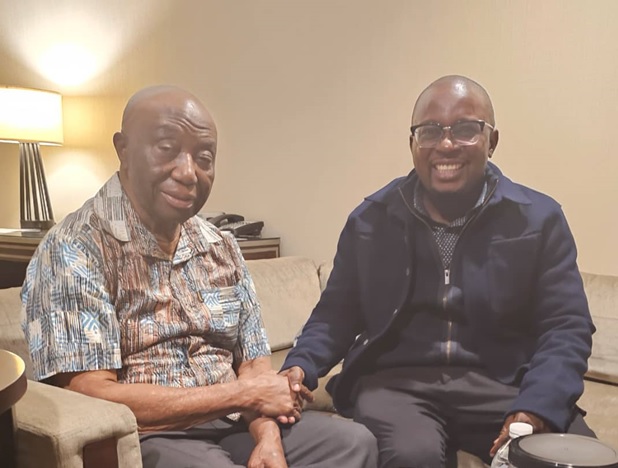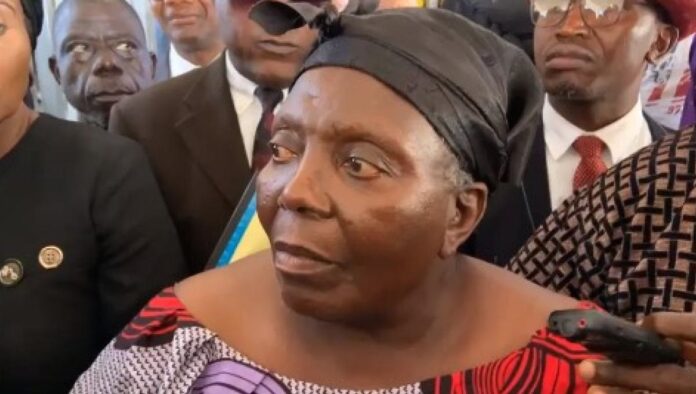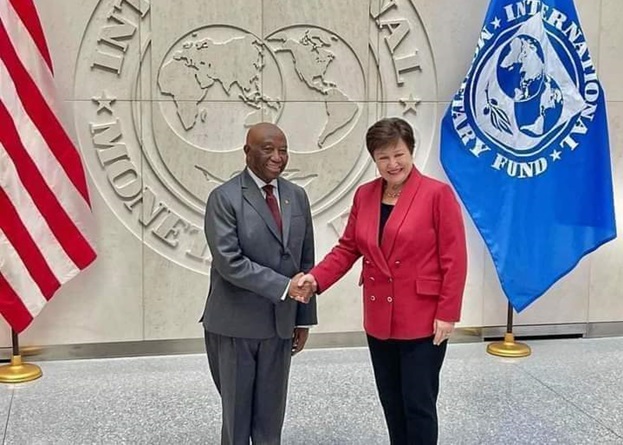As we delve into the narrative of Joe Boakai’s victory, it is reminiscent of the resilience and strength demonstrated by Nigeria’s President Buhari and US President George Washington, who secured two elections at an advanced age. Boakai emerges as a symbol of robust health, embodying vitality in stark contrast to some government ministers characterized by notable and protruding “stomachs.” Ref. Samuel Tweah, Nathaniel Mcgill, George Weah, and Bill Twehway. Just google their images and decide whether they look healthy.
This distinction gains added significance when considering past erroneous predictions, particularly those surrounding Sirleaf’s tenure. Predictions suggesting she wouldn’t complete her term were proven wrong, and it’s noteworthy that some who made such predictions are regrettably no longer with us. As of today, Sirleaf remains alive and in good health—a testament to the unpredictability of life and political narratives.
In the unfolding narrative of Boakai’s journey, his commitment to constructing a new Liberia becomes a central theme. He stands as a transformative leader, drawing parallels with US President Washington’ success in building America at an advanced age.
The rallying cry to “Keep hope alive” reverberates through the collective consciousness of Liberian citizens, urging them to unite for a prosperous and transformed nation under Boakai’s leadership.
Drawing inspiration from the annals of history, Boakai’s role is reminiscent of George Washington’s legacy. Much like Washington, who led the United States through its formative years, Boakai is positioned as a visionary leader dedicated to building a new nation that embodies ideals of freedom, opportunity, and prosperity.
In his recent post, former Finance Minister Boima Kamara lends authenticity to the narrative, emphasizing the strategic vision for achieving a $4 billion budget. This vision encompasses domestic resource mobilization, private sector engagement, and robust anti-corruption measures. It marks a historic turning point, acknowledging Liberia’s underestimated productive capacity and untapped revenue potential.
Although some of us question Boima’s contention that some “holy spirit” will give Liberia a $4 billion budget, his assertion of a potential $4 billion budget is ambitious, audacious and noteworthy.
Prominent finance ministers, including Amara Konneh, Augustine Ngafua, Nathaniel Barnes, Elias Seleeby, G. Alvin Jones, David Farhat, and Boima Kamara, echo the consensus that domestic resource mobilization and a robust private sector are imperative for constructing a prosperous nation. While some advocate caution in severing ties with the IMF/World Bank, the emphasis remains on achieving economic freedom and self-reliance—a testament to Boakai’s commitment to steering Liberia towards self-sufficiency.
Joe Boakai’s assertion that “Liberia is a rich country” places a collective responsibility on technicians and professionals to substantiate this claim. The ambitious goal of achieving a $4 billion budget, as articulated by Boima Kamara, reinforces the call to join the prosperity agenda. The aim is to construct a new, shining Liberia on the hills—a nation that not only rectifies past missteps but becomes a beacon of hope and progress in the African landscape.
The intentional use of the term “construct” becomes symbolic, signifying a departure from mere reform or reconstruction. Liberia, as envisioned by Joe Boakai, is to be meticulously built on a legacy of prosperity, a functioning democracy, an “aristocracy of talent,” and a beacon of hope for all people of color—a vision that transcends political agendas and embodies the collective aspirations of the nation.
A poignant personal revelation underscores moments of doubt regarding the possibility of change in Liberia. Joe Boakai emerges as the catalyst for renewed hope—a transformative force that convinced even the skeptics. He represents the last chance for positive transformation, urging every individual to actively join this movement. Liberia belongs to everyone, and the fervent plea is to resist the corrosive influence of corruption and incompetence. STOP corruption.
Joe Boakai’s unwavering commitment extends beyond rhetoric, outlining concrete plans to audit and investigate corruption in the Weah government. He aims to establish a committee for prosecuting and recovering stolen assets, emphasizing a commitment to excellence and ending the era of impunity. Prioritizing the private sector for job creation, Boakai envisions a Liberia where government is not the primary employer but a facilitator for private sector growth. Liberians need JOBs and we should be laser focus on that.
His competitive spirit shines through in positioning Liberia as the “Final Destination” in Africa, challenging Ghana’s claim as the “Gateway to Africa.” This proclamation reflects not only confidence but also a strategic vision to redirect Black American businesses to Liberia—an initiative that aligns with Boakai’s belief in Liberia’s rightful place on the global stage.
In summary, Joe Boakai’s vision for Liberia is not just a political agenda but a saga of strength, resilience, and strategic foresight. It is a narrative that transcends individual ambitions, urging citizens to unite for the construction of a new Liberia—a nation that stands as a symbol of hope, progress, and collective achievement for generations to come, echoing the spirit of George Washington’s legacy.
Like George Washington and Buhari, Boakai will win in 2029 as his newly CONSTRUCTED Liberia will be unmatched in Africa. Liberians are the most competitive people in AFRICA. They just need the opportunity to shine on the global stage.







